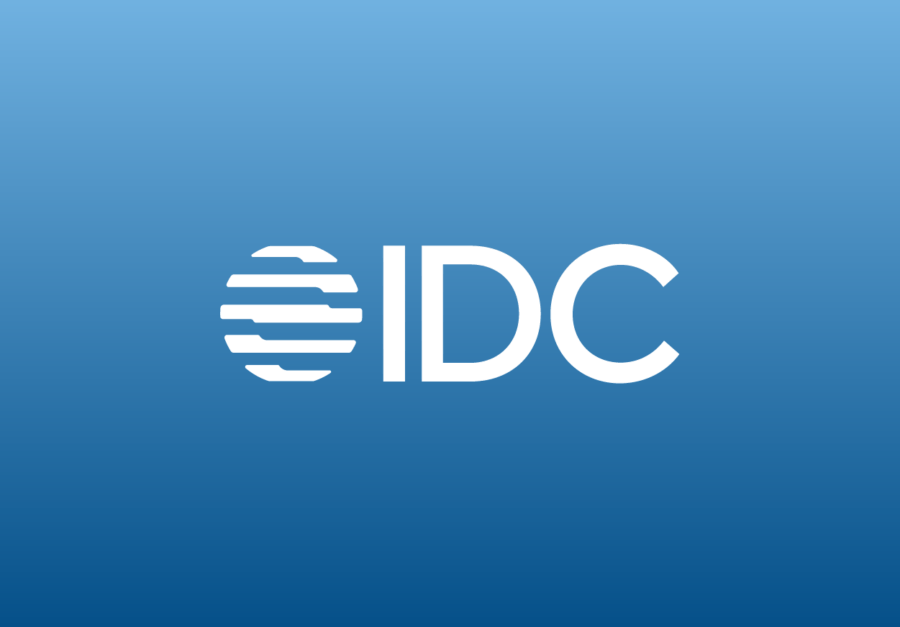eBook
Seven Competitive Advantages of the Modern Treasurers

In today’s rapidly changing environment, treasurers face wide and varied challenges. Regulatory developments are amplifying treasurers’ compliance challenges, while the threat of external fraud has escalated as cybercriminals adopt more sophisticated techniques. At the same time, treasurers continue to face perennial challenges such as managing cash effectively, optimizing working capital and centralizing payments.
In this climate, treasurers need to take advantage of the available tools, techniques and technology in order to overcome the challenges and operate as efficiently as possible. In particular, treasurers can focus on the following seven areas to give themselves a competitive advantage in this challenging market:
- Reducing risk with cloud solutions
- Achieving consistency with payment factories
- Reducing intercompany payments with multilateral netting
- Unlocking free cash flow with supply chain finance
- Improving fraud prevention and detection
- Creating a robust business continuity plan
- Ensuring regulatory compliance
Read on to find out how treasurers can leverage these topics to benefit their businesses and improve their competitive positioning.
Table of Contents
- 1. Reducing Risk with Cloud Solutions
- 2. Achieving Consistency with Payment Factories
- 3. Reducing Intercompany Payments with Multilateral Netting
- 4. Unlocking Free Cash Flow with Supply Chain Finance
- 5. Improving Fraud Prevention and Detection
- 6. Creating a Robust Business Continuity Plan
- 7. Ensuring Regulatory Compliance
- Conclusion
1. Reducing Risk with Cloud Solutions

Cloud is more than a buzzword: treasurers who use cloud solutions can see numerous benefits, from lower implementation costs to easier access to the newest innovations in software. Typically, cloud providers will have backup data centers based in low-risk locations. These data centers will have full replication of the company’s login protocols and ERP interfaces, avoiding the risk of service disruption.
Cloud solutions can also reduce treasury-related risks in a number of ways. For one thing, the risk of obsolescence is eliminated: unlike installed software, cloud solutions do not need to be replaced every few years. For another, data is held at a secure location, reducing employee-related risks and shifting IT’s role from one of hosting to one of evaluation.
In addition, cloud solutions offer the following advantages over solutions hosted on the company’s premises:
- Business continuity. Cloud-based treasury systems can be accessed away from the office, providing invaluable business continuity benefits if the office cannot be accessed for any reason.
- Fast implementation. Cloud treasury systems can be implemented much faster than onpremises solutions.
- Standardized workflows. Workflows can be standardized across different countries and regions.
- Scalability. Cloud-based systems can be rolled out to additional locations as the business expands.
- Easy updates. Cloud providers can update features and functionalities quickly and frequently, without the need for treasury involvement and without incurring additional costs.
2. Achieving Consistency with Payment Factories

Payments – and the centralization of payments across the organization – is another focal point for modern treasurers seeking a competitive advantage. Without centralization, a company’s payment processes tend to be fragmented and inconsistent. Manual processes are associated with a higher risk of error and fraud, while the need to support multiple different systems can lead to higher costs and greater inefficiency.
Payment centralization, which can be achieved using structures such as payment factories, can be used effectively as a means of standardizing companies’ payments processes. This can result in a number of benefits, including greater visibility over outgoing cash flows, streamlined banking relationships and improved control over the timing of payments. Risks can be reduced by adopting automated workflows and predefined approval limits. Concentrating payment flows on a single banking channel can also lead to lower transaction costs.
In order to set up a payments factory, treasury will need to work with representatives from other parts of the business, including accounting, accounts payable and supplier management, to map out how payment workflows will operate once the new structure is in place. Companies will also need to consider what type of software they will use to centralize their payment workflows.
3. Reducing Intercompany Payments with Multilateral Netting

Organizations can incur intercompany balances in relation to several different activities, including dividends, trade payables, cost shares and intercompany loans. These balances will need to be settled in accordance with agreed payment terms.
Some companies may see a high volume of intercompany payments, resulting in higher bank fees, FX payment costs and settlement risk. Processing intercompany payments is often a manual and time consuming task, which has tax and legal implications.
Why Netting?
In order to address these challenges, companies which undertake large volumes of intercompany payments can use multilateral netting solutions to reduce the number of physical payments which need to be made. A netting system consolidates intercompany payments, with each participant making or receiving a net payment each month instead of settling each payment individually. This has the result of reducing bank fees while eliminating manual tasks and settlement risk.
Netting systems can provide a standardized workflow process which can be used consistently around the globe, alongside other functionalities such as on-demand statements and historic intercompany reporting. They can also improve internal and external audit compliance, as well as consolidating and hedging FX exposures.
4. Unlocking Free Cash Flow with Supply Chain Finance

Treasurers can also gain a competitive advantage by using supply chain finance structures to unlock or deploy free cash flow.
Broadly speaking, supply chain finance is a means by which buyers can help their suppliers finance their receivables. Such programs can bring a number of benefits for both buyers and suppliers. For one thing, suppliers can access finance at a lower cost, thereby strengthening the relationship between the buyer and supplier. Suppliers are also less exposed to liquidity risks which could lead to disruptions across the supply chain.
Different models are available, including dynamic discounting and reverse factoring programs:
- Dynamic discounting. Dynamic discounting programs allow early payment discounts to be managed in a more flexible way. Sliding scale discounts enable buyers to choose payment dates in accordance with cash availability, while sellers can choose which invoices to offer for discount.
- Reverse factoring. Buyers can enable their suppliers to access early payment for invoices via the buyer’s bank. Buyers can thereby improve liquidity for their suppliers – even if payment terms are extended.
This is the most exciting area for the treasurer that wants to be a key strategic business partner across all functions of the corporation. […] You can build stronger relationships down the chain and increase your competitiveness up the chain, all while increasing profits – it is the true winwin that comes from using technology to do things smarter.”
— Todd Yoder, Global Treasury Director, Engineering Services
5. Improving Fraud Prevention and Detection

The risk that companies will fall victim to fraud is considerable. The 2016 AFP Payments Fraud and Control Survey found that almost three quarters of companies had been the target of attempted or successful payments fraud in 2015. As fraudsters adopt increasingly sophisticated techniques, it is more important than ever for corporate treasurers to understand different types of fraud – and take appropriate measures to safeguard their companies.
Specific threats include business email compromise (BEC) scams, whereby criminals send an email to a company’s employee purporting to be from the CEO or CFO requesting that a high value payment is made into a specific account. Such scams can be very convincing, with considerable efforts made to imitate the CEO or CFO’s writing style. The targeted employee will typically be told that the payment is urgent and confidential.
Many companies have fallen victim to this type of scam, but by putting in place suitable security measures treasurers can reduce the risk of fraudulent payments. These measures should include suitable segregation of duties, with different employees requesting, processing and releasing payments. Treasurers should also implement payment authorization limits for individual employees, as well as using bank controls such as positive pay and ACH debit block. Just as importantly, employees should be educated about the relevant risks and should fully understand and adhere to the controls in place.
6. Creating a Robust Business Continuity Plan

Business continuity can be disrupted for various reasons, from employee sick leave to severe weather events. Having measures in place to minimize the impact of any disruption is essential: treasurers need to make sure that critical daily tasks, such as cash positioning, FX trading and wire transfers, continue to take place without interruption. Treasurers should therefore have suitable measures in place, and should document these with a robust business continuity plan.
In particular, treasurers should consider the following:
- Employee cross training. Each team member should have a basic knowledge of how to execute essential daily tasks. This can be facilitated by incorporating cross training into employees’ KPIs.
- Procedure documentation. Treasurers should document the steps needed to complete critical daily tasks, complete with screenshots and detailed instructions. By including these instructions in a business continuity plan, treasurers can enhance cross training and provide concrete reference material for when the need arises.
- Working remotely. On occasion, employees may be unable to get into the office. Remote working procedures should therefore be included in the business continuity plan, stipulating whether employees are permitted to conduct company business using personal computers, or whether designated business continuity laptops will be provided for employees to keep at home.
The plan should be tested regularly, with employees working remotely and completing all of the critical tasks at least once a quarter – or, ideally, once a month. A hard copy of the plan (and any subsequent updates) should be distributed upon completion to be kept at home for reference.
Business continuity is critically important to treasury – employee cross training, documenting critical daily tasks, having employees work remotely – and testing all of these elements, contribute to a strong business continuity program for treasury teams.”
— Edward Saavedra, Treasury Manager, Manufacturing
7. Ensuring Regulatory Compliance

Regulatory compliance might not sound like a competitive advantage if compliance is compulsory – but some companies address this area more successfully than others. By tackling compliance proactively and efficiently, and by using suitable technology, treasurers can minimize the associated costs and may even be able to leverage regulatory change to benefit the business.
Regulation has always been a concern for corporate treasurers, but in the last few years the high volume of regulatory changes has made this topic more challenging than ever. With new rules affecting areas as diverse as tax, accounting, KYC/ AML and payments, corporate treasurers face considerable challenges in ensuring they remain compliant.
At the same time, treasurers have also had to understand how their banks are affected by regulations such as Basel III, as such developments can have a knock-on effect on the products and pricing available to corporate customers.
In this climate, treasurers need to take the necessary steps to understand how different regulatory changes affect their businesses. They should ensure that they have the necessary treasury resources in place to achieve compliance, and that their treasury technology meets their compliance needs as well as supporting strategic goals. Typically treasurers should seek advice from experts including banks, technology providers and consultants.
Sometimes I feel more like a member of our legal counsel than a treasurer with all of the regulatory compliance a MNC treasury needs to manage – having the right business partners makes all the difference.”
— Todd Yoder, Global Treasury Director, Engineering Services
Conclusion
The current climate continues to present treasurers with considerable challenges, from cybercrime to business continuity and from payments to compliance. These challenges are set to continue – but as technology develops further, treasurers can access increasingly sophisticated tools to reduce risk, free up cash flow, increase standardization and boost efficiency across their operations. By using appropriate tools, and by putting suitable structures and processes in place, treasurers are able not only to overcome the obstacles they face, but also to gain a competitive advantage.









